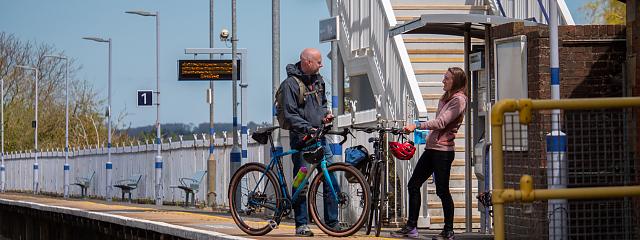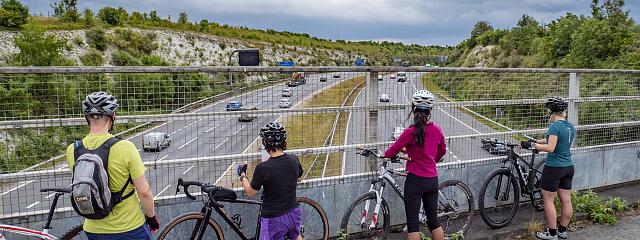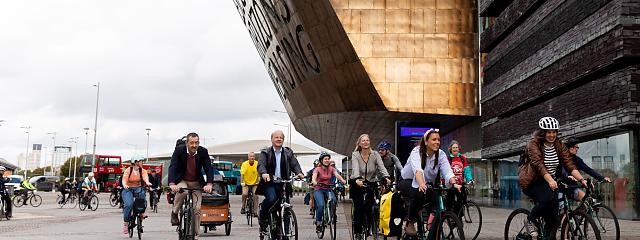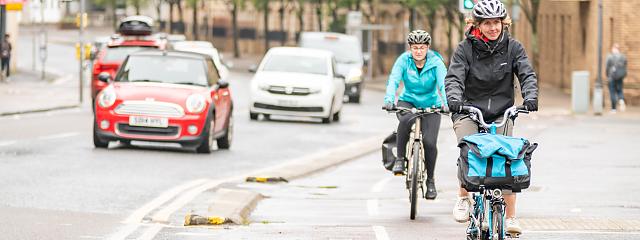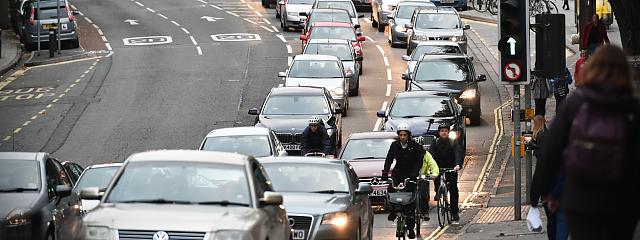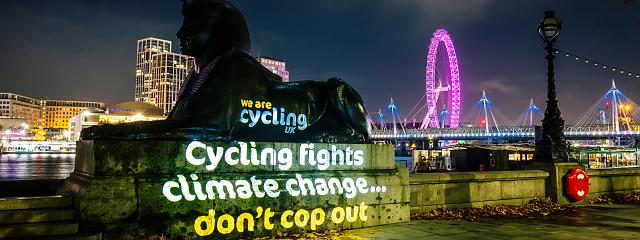
Prime minister urged not to treat cycling as ‘political football’
Prime minister urged not to treat cycling as ‘political football’
Front page news in the Sunday Telegraph on 30 July made it clear to readers that Prime Minister Rishi Sunak was drawing a line in his government’s policies designed to give people transport choices in favour of motoring.
Under the headline “I am on motorists’ side, says Sunak as he orders review of anti-car schemes” (£), the prime minister declared his intention to review so-called “anti-car” schemes, with the Department for Transport ordered to look specifically at measures designed to make residential streets safer and quieter, sometimes referred to as low traffic neighbourhoods or liveable neighbourhoods.
Citing concerns of congestion and displacement traffic fears – where traffic no longer using residential streets for rat running uses other streets instead – Mr Sunak stated his support to maintain the status quo that forces people to drive. Such concerns have been disproved by the University of Westminster’s Dr Rachel Aldred.
Rather than challenging a system that locks in car dependency, due to a lack of public transport or safe cycling and walking routes, Mr Sunak said: “The vast majority of people in the country use their cars to get around and are dependent on their cars.”
Ironically, as campaigners have pointed out, since his government slashed funding for cycling and walking by 75% in May 2023, one of the most cost-efficient ways for local authorities to create safer cycling and walking routes in order to achieve government targets, is the creation of liveable neighbourhoods.
The prime minister’s attack on schemes designed to make residential areas better for the people who live in them, rather than those driving through them, coincidentally follows a recent unexpected by-election victory for the Conservative party in the constituency of Uxbridge.
This victory has been attributed to opposition of the forthcoming expansion of an Ultra Low Emission Zone in London to improve air quality, which has been labelled as anti-motorist.
Concerned that measures designed to make the roads safer, air cleaner and neighbourhoods places for people not vehicles will be dropped, Cycling UK chief executive Sarah Mitchell called on the prime minister to reflect on his government’s success and not stoke division on the UK’s roads.
“Rather than attempting to pit people driving, cycling and walking against one other through divisive rhetoric, and turning liveable neighbourhoods into a political football, the government should be celebrating their popularity and success,” said Sarah.
“Evidence shows quieter streets and less traffic are overwhelmingly popular, and support for these things only increases once they’ve been implemented and people see the benefits.”
It’s lazy to label measures which reduce car dependency as anti-car, people want to be less car dependent
Sarah Mitchell, Cycling UK chief executive
Ms Mitchell added: “It’s lazy to label measures which reduce car dependency as anti-car, people want to be less car dependent. Liveable neighbourhoods give people the opportunity to drive less and cycle more, consequently enjoying cleaner air, safer streets and less traffic and congestion.”
However conceding that liveable neighbourhoods in their own right are often not enough and need to be a part of a wider package of measures, Sarah urged government not to abandon them.
“Liveable neighbourhoods are not always a magic bullet on their own,” she said. “They need to be designed in consultation with communities and may need additional measures, such as investment in healthy and sustainable alternatives. This will ensure they reduce traffic overall rather than simply sending it elsewhere.
"If done well, their benefits are enormous. That’s why Cycling UK is urging the government to encourage their take-up – for the benefit of everyone in our communities, and for the planet.”
Cycling UK, together with other members of the Walking and Cycling Alliance, transport and road safety and environmental groups, are now considering how best to respond to a government policy shifting away from giving people sustainable choices to travel.






